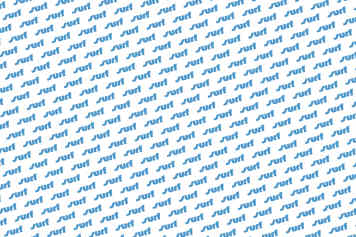Early glider: Thommen Gleitwunder 165 Original in the test - the pleasure glider
Surf Testteam
· 05.08.2025






If only this Thommen shape existed, the surf dictionary would be one technical term poorer. Because the infamous "planing threshold" - which you often have to help a board over before you can "enjoy the glide" - was nowhere to be found. What often feels like a high kerb that stands in the way of easy planing, on the Thommen shape looks more like a gently rising ramp that the board masters effortlessly.
It glides on a par with the much wider Blast, with even lower demands on riding skills. After a very harmonious start to the glide, it accelerates a little more smoothly than a Blast or CarveThis allows you to get into the straps, which are mounted comparatively far inwards, in a super relaxed manner. And the stance is surprisingly comfortable: on the one hand due to the contoured deck, but above all because the three short fins (centre fin 32 centimetres) hardly create any capsize moment that you would have to fight against, even if there is real pressure in the sail. The board thus maintains its flat and super-stable planing position independently on all courses - without any energy-sapping body tension and without requiring much foot pressure.
- Peter Thommen and Werner Gnigler told us more about their shape concepts in an interview: Peter Thommen & Werner Gnigler - early gliding in light winds
Thruster fin setup with top control and good upwind performance
The bow tip flies very flat over the water and remains stable even when you squeeze the last bit of power out of the sail. On very high choppy waves, the flat planing position takes a little getting used to at first and the front rail often takes the higher waves noticeably with it on a closehauled course - which can reduce the riding comfort somewhat at very sporty speeds, but the objective control remains outstandingly good. We pushed the board to just under 50 km/h at maximum power and experienced no control problems whatsoever.
The fins look powerful and even allow a good angle when going upwind with a secure hold - although not quite at the same speed as the single fin boards, especially in the lower and medium wind range. For jibes and tight hooks, the shape requires comparatively little foot pressure, enables tight turns and, if the chop is not too high, sporty carving jibes - with good planing potential in the turn.
surf summary of the Thommen Gleitwunder
Above all, an extremely easy to surf board with a flat planing position, the best and easiest passive planing and a large wind range due to its superior controllability in strong winds. Even smaller sails under seven square metres are easy to use. The flat planing position and the low leverage of the fins make the board noticeably different from the familiar freeride feeling.
Technical data Thommen Gleitwunder 165 Original
- Volume: 165 litres
- Length: 265 cm
- Width: 82 cm
- Weight: 9.35 kilos*
- Price: 2249 Euro
- Info: thommen1.com
*surf measurement
